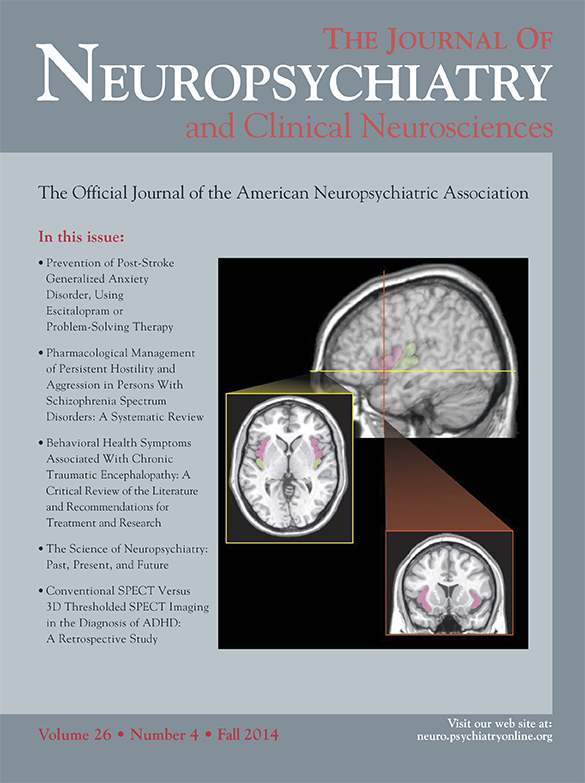To the Editor: Psychogenic polydipsia-associated hyponatremia is a common electrolyte disorder seen in psychiatric patients.
1 Most of psychogenic polydipsia have been reported in patients with schizophrenia
2 and rarely in those with mood disorder.
3 Here we report the case of a patient with bipolar affective disorder (BAD) who developed panic symptoms with polydipsia.
A 68-year-old woman has suffered panic disorder (DSM-IV) since 6 months ago and thus been treated with escitalopram 10 mg/day and estazolam 2 mg/day. She was admitted for limited treatment response. No specific physical illness, nonpsychiatric medication use, and substance abuse were mentioned except increased water intake of about 6 L/day for 6 months. Upon admission, laboratory data showed plasma sodium levels of 121 meq/L (normal range: 136–145 meq/L) and plasma osmolality of 233 mOsm/L (normal range: 280–295 mOsm/L). Liver, renal, thyroid functions, and fasting blood sugar were within normal range. Her water intake was restricted to 2.5 L/day under careful supervision. Followed plasma sodium levels gradually reached the normal range within 1 week. Then her anxiety symptoms got much improved but evident manic symptoms characterized euphoric mood, talkativeness, increased psychomotor activity, and decreased sleep were noticed despite no escitalopram treatment. On day 11, she was treated with valproate 1400 mg/day and discharged on day 25 with full recovery of manic episode. Her diagnosis was finally revised to BAD, current manic episode.
The prevalence rate of psychogenic polydipsia associated hyponatremia is estimated to be about 20% among chronic psychiatric patients.
1 Hyponatremia itself after polydipsia causes a variety of neuropsychiatric symptoms such as headache, vomiting, lethargy, psychosis, and seizures.
4 These symptoms can lead to life-threatening complications, including falls, attention deficits, osteoporosis, and fractures.
5 The described patient’s manic state developed after escitalopram (a serotonin reuptake inhibitor, or SSRI) prescribed for 6 months. SSRI-induced manic switch could not be fully ruled out despite discontinuing escitalopram therapy for 1 week. SSRIs are sometimes the cause of hyponatremia and commonly have side effects of nausea and vomiting,
4 a potent stimulus of vasopressin,
4 which may further contribute to the development of hyponatremia. Here, the patient presenting hyponatremia-associated panic symptoms masked underlying BAD and led to a delayed diagnosis and treatment. Both BAD and hyponatremia have been reported the important causes of cognitive deficits.
4,6 Therefore, a routine measurement of sodium levels in chronic psychiatric patients would be needed because of the high prevalence rate and adverse consequences of hyponatremia mentioned above.

